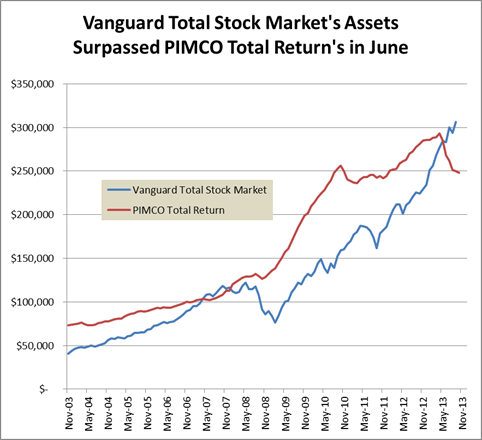Five reasons to invest in bond funds
Post on: 31 Март, 2015 No Comment

Five reasons to invest in bond funds
While both investment approaches can have certain advantages and disadvantages, bond funds provide five key benefits when it comes to broader diversification, improved liquidity, lower trading costs, expert analysis, as well as reduced risk. Specifically, the structural advantages of using bond funds over individual bonds can have a significant impact on your portfolio’s risk and return characteristics.
1. Broader Diversification
First and foremost, bond funds can provide broader diversification for your portfolio. Clients who may not have the capital required to buy an adequate number of individual bonds can achieve a sufficient level of diversification using bond funds.
Bond funds offer greater access to breadth of issuers, range of credit qualities, varying options for maturities, different shapes of yield curves, foreign currencies, and even bond characteristics, such as callable or non-callable, senior and/or subordinated debt. Such access is due to the significant pool of investable bonds available.
In fact, the bond market consists of far more individual securities than the equity market. While an average company has typically one common stock issue, it might have a wide variety of bond issues outstanding. Bond funds have investment management teams dedicated to conducting extensive analyses of individual bonds and market characteristics. The fund manager can diversify widely and cost effectively, based upon any number of investment objectives.
2. Improved Liquidity
Bond funds can offer you improved liquidity and transparency. They can be conveniently bought
or sold at Net Asset Value (NAV). You know the price of your funds on daily basis. On the other hand, many individual bonds can have liquidity issues. This can be seen in the wider bid/ask spreads for certain bonds. Many bond issues don’t trade on a regular basis due to supply-anddemand forces and up-to-date prices can be difficult or impossible to obtain.
3. Lower Trading Costs
Bond funds significantly benefit from their large scale; given the size and volume of their trades, the cost of buying and selling bonds is often much lower within a bond fund than for the individual bondholder. The costs associated with trading bonds are less obvious to investors as they can be hidden in the price. This is especially evident in trading municipal or emerging market bonds where smaller lot sizes result in much higher costs. The trading cost effectiveness is necessary to achieve desired returns.

4. Expert Analysis
Most investors lack the appropriate tools to perform necessary due diligence. A bond fund
management team has the expertise and tools to conduct an extensive credit analysis on individual bonds in the fund. Many determinants of bond return and risk need to be considered in the analysis. The bond universe can be a very complex space and it is crucial to understand the nuances of specific bonds.
5. Reduced Risk
There is a plethora of risks associated with investing in bonds. Some of the main risks include: interest rate risk, credit risk, reinvestment risk, liquidity risk, inflation risk, exchange-rate risk, and sovereign risk. Using bond funds can help mitigate many of these risks. Additionally, investing in bond funds can help reduce the unsystematic (diversifiable) risk that is the result of owning either too few bonds or those having too similar characteristics.














